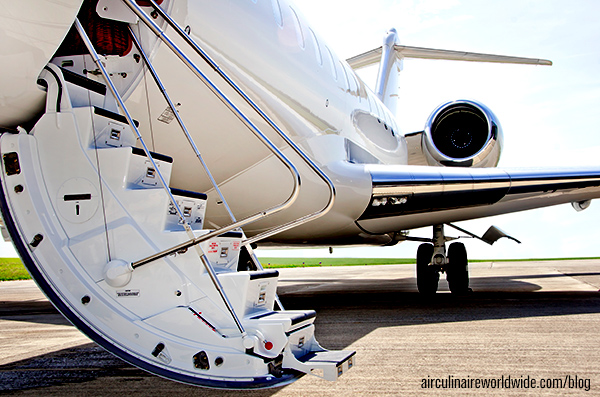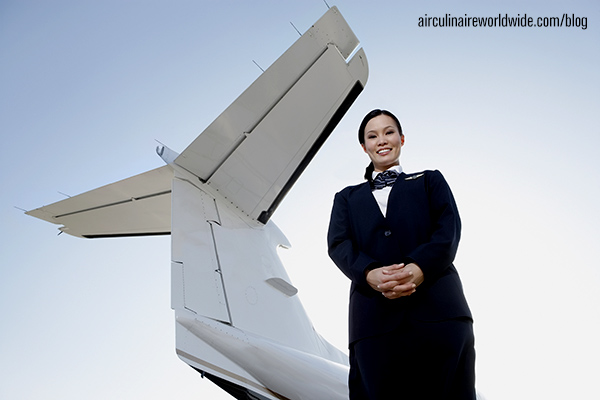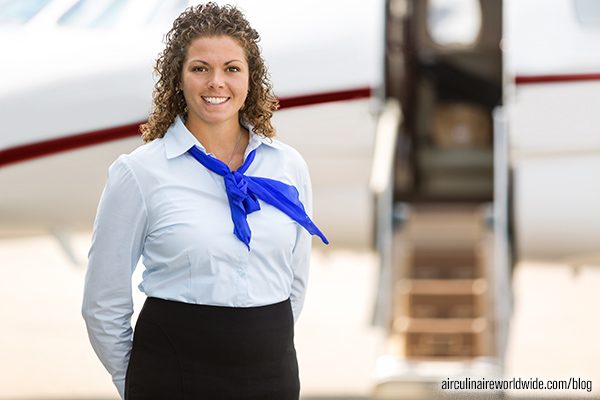Being a corporate flight attendant is filled with as many opportunities as challenges. If you have been in private aviation for a while and are considering switching to contract work instead of full-time, you should be aware of the potential ups and downs associated with this career move. This article will provide insight into the life of a contract VIP cabin crew member, so you can make an informed decision that will suit you best.
- Schedule Flexibility – The biggest advantage of working as a cabin crew member on a contract basis is that you have the freedom to choose which flight duties to accept. Additionally, you can also work as much or as little as you choose. Making the move to contract work means you work when you want without being tied to an aircraft, a roster or a company. Your assignments will come one at a time and if you are presented with a trip you are not interested in, you can always decline for other opportunities.
- Prepare in Advance – When working contract, you should be ready to go in a moment’s notice. Assignment lead times can be a short as one to two hours before wheels up. Ideally, you will receive notice 24 hours in advance. This provides ample time to learn the passenger profiles, any company requirements, aircraft layout and equipment. This also gives you time to arrange in-flight catering that is tailored to any specific VIP preferences, as well as arrange cabin amenities, like flowers and chocolates. Always being ready for your next assignment (bag packed, in-flight catering provider details, a draft order for the maximum pax count, etc.) will keep you one step ahead of your next trip and minimize stress.
- Understand the Financials – In addition to increased flexibility in your schedule, financial benefits should also be considered. As a contract flight attendant, you can earn up to $450 USD per day. The exact amount will depend on your experience level, variety of aircraft you have operated on and types of aircraft you are certified on. Contract flight attendants who have experience working alone on small aircraft tend to be able to charge higher rates.
- Find Balance – Each day in private aviation is different, and this is amplified for contract cabin crew. Contract assignments aren’t stable, so you will need to create balance in your monthly budgeting. Assignment will come in an “on again, off again,” so you will need to save away some extra money during months where you receive handsome income in order to reduce financial stress during potentially weeks of downtime.
- Benefits and Training – When setting your daily rate, keep in mind that, aside from your hotel and work-related travel expenses being covered, it will be the only payment you will receive. This means it is solely your responsibility to purchase health insurance, recurrent training and any other benefits you currently receive from your employer. This is important to remember since most contract work will still require you to be certified and current on training for the aircraft you will be flying on.
- Obtain Written Agreements – Make sure you received a written agreement for every assignment, no matter if it is even just one day long. Plans frequently change in private aviation and without the details in written form you could commit to a short trip only to find yourself gone for week at a daily rate you did not agree to, or even working for free on some of those days
- Decide How You Work Best – If you are offered a contract trip on a bigger aircraft (such as an Airbus or BBJ), you will be working on a cabin crew team. This means you will be performing specific duties which the person in charge will brief you on, this also means your role on the aircraft will be simpler. However, if you choose to work solo you will receive the most challenging work. This is because you are solely responsible for organizing every detail of the flight.
- Hone Your Problem Solving Skills – Thinking on your feet is extremely important, especially when given only a few hours to prepare for a flight. You might be in a new country, working on a new aircraft you haven’t seen before and with passengers you know nothing about.
- Build Your Network – When it comes to finding contract opportunities, you need to be highly networked in order to be top of mind in order to learn what is available through word of mouth. Keep in touch with old colleagues and consider registering with recruiters that work with contract VIP cabin crew. Business networks, such as LinkedIn and private Facebook groups, are great ways to gain exposure for your services and level of availability.
As you can see by this overview, working as a contract VIP cabin crew member is both challenging and rewarding. Leave a comment below to let us know if you decide to take the plunge!
Questions?
If you have any questions about this article, contact Simona Netejoru at info@cabincrewexcellence.com.
| This is an article by guest author Simona Netejoru. Simona is a co-founder of Cabin Crew Excellence, along with Monica Lazar. Simona and Monica are based in the United Arab Emirates and are industry experts in business aviation, specializing in VIP service in the Middle East. Any thoughts expressed in this article are entirely Simona’s and do not necessarily reflect the views of Air Culinaire Worldwide. |
If you would like to be considered for becoming a guest author, please contact socialmedia@airculinaire.com.












